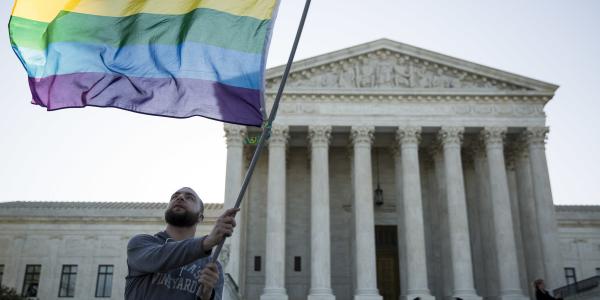In the U.S. Supreme Court’s landmark decision of Bostock v. Clayton County, Georgia, the Court held that an employer who fires an individual because they are gay or transgender violates Title VII of the Civil Rights Act of 1964. In that 6-3 decision published on June 15, 2020, the Court decided three cases, Bostock v. Clayton County, Georgia, Altitude Express, Inc. v. Zarda and R.G. & G.R. Harris Funeral Homes Inc. v. Equal Employment Opportunity Commission. The Court considered the question whether Title VII’s prohibition of workplace discrimination because of sex includes discrimination based on homosexuality or transgender status. The Court ruled that “[a]n employer who fires an individual for being homosexual or transgender fires that person for traits or actions it would not have questioned in members of a different sex.”
The facts of the three cases are concisely summarized as follows. Gerald Bostock was a decade-long child welfare advocate for Clayton County, Georgia. Not long after Bostock began participating in a gay recreational softball league, the County fired him for conduct “unbecoming” a county employee. Donald Zarda was employed as a skydiving instructor at Altitude Express in New York. Only a few days after Zarda told a client he was gay and a complaint was lodged with Altitude, Zarda was fired. Aimee Stephens was a sixyear employee of R. G. & G. R. Harris Funeral Homes in Garden City, Michigan. Stephens presented herself as male until 2013, at which time she wrote a letter to her employer explaining that she planned to “live and work full-time as a woman.” Two weeks later, the funeral home fired her stating “this is not going to work out.”
The Supreme Court held that Title VII prohibits discrimination on the basis of sexual orientation or gender identity. The Court reasoned that “it is impossible to discriminate against a person for being homosexual or transgender without discriminating against that individual based on sex.” Two examples highlighted the Court’s logic. The first posits an employer with both a male and female employee who are each attracted to men. If the employer fires the male because of his attraction to men, he does so necessarily on the basis of sex, as the same attraction is tolerated in the female employee. The second example suggests an employer with two employees that identify as female. One of the employees is a transgender person who was identified as male at birth, while the other was identified as female at birth. If the employer terminates the employee that was identified as male at birth and retains the employee who was identified as female at birth on account of that distinction, the employee’s “sex plays an unmistakable and impermissible role in the discharge decision."
The High Court further stressed that employers cannot escape liability by demonstrating equal treatment of men and women on a general basis; Title VII does not simply safeguard equal treatment of sexes as groups, but also protects individual employees from specific discrimination by employers on account of an employee’s sex. Nor can an employer claim sex was not the "sole or primary cause" of an adverse employment action. In reemphasizing earlier precedent, the Court stated that an employer violates Title VII when they intentionally rely, even in part, on an individual employee’s sex when discharging the employee. Finally, the Court said it does not matter what an employer labels the discriminatory practice, what others might call it or what motivations might underlie it. If the adverse decision was made because of an employee’s sex it violates Title VII.
Overall, Bostock underscores a clear message to employers about Title VII: “An individual’s homosexuality or transgender status is not relevant to employment decisions.” Employers who take adverse employment actions against an employee on the basis of sexual orientation or gender identity violate Title VII and are subject to liability.
Please contact Melick & Porter's employment practices group with any Title VII-related employment inquiries.




